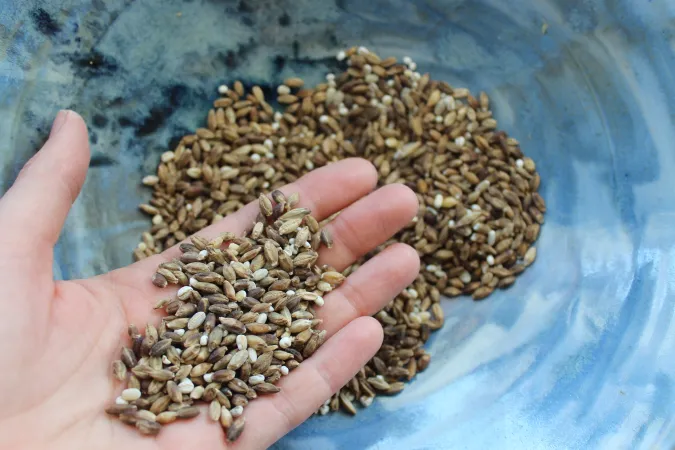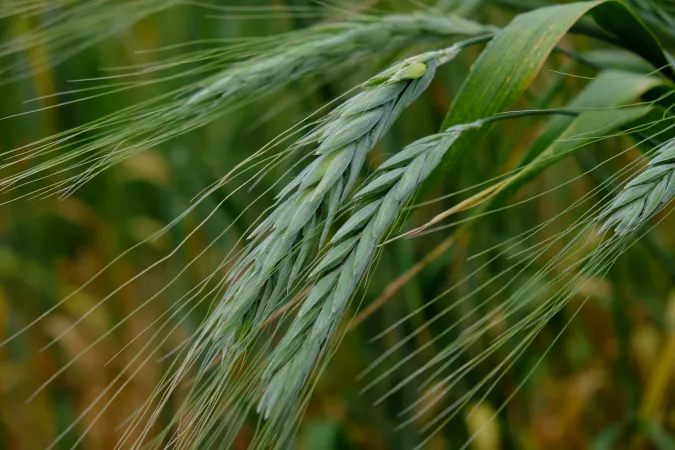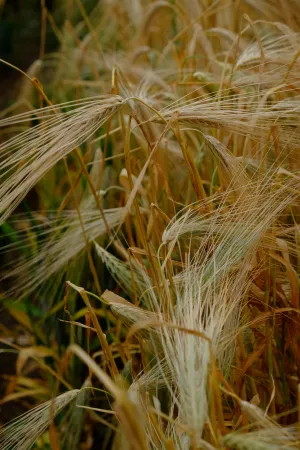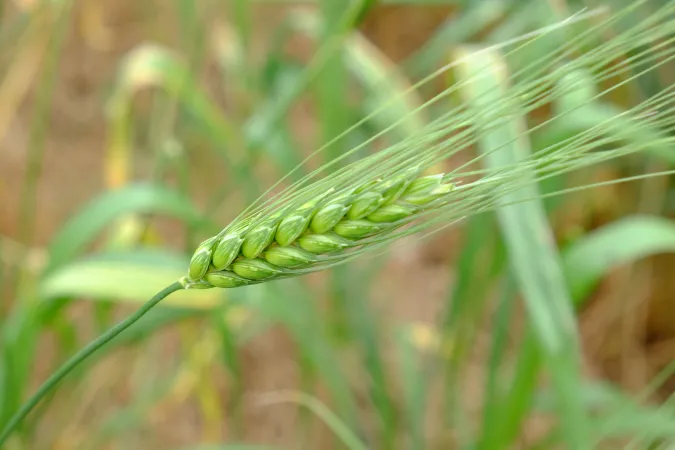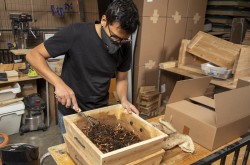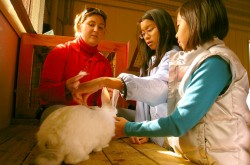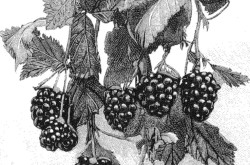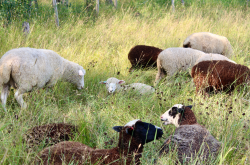Behind the scenes: Meet an organic grain farmer

Shelley and Tony Spruit are going against the grain.
After more than a quarter century of growing wheat, soybeans, and corn — mainly for animal feed and ethanol — the couple began experimenting with alternatives on their family owned and operated farm near Ottawa, planting seeds from corn and barley varieties not traditionally grown in Ontario. The move is reflective of their agricultural philosophy, and Shelley Spruit believes it’s critically important to educate consumers about what they’re eating.
“Everyone who eats is involved with agriculture,” she says. “What we put on our plate speaks to what we feel is important and what we are willing to support. Agricultural bio-diversity is dependent on farmers willing to step outside the box and grow food that is healthy and wholesome, but this also takes consumers that are willing to pay for a product that is not based solely on the cheapest price. Food is life; we can no longer disassociate our health, the health of the planet, and our food choices.”
The Ingenium Channel caught up with Spruit to learn more about what’s growing at Against the Grain Farms, and how that impacts the health of consumers.
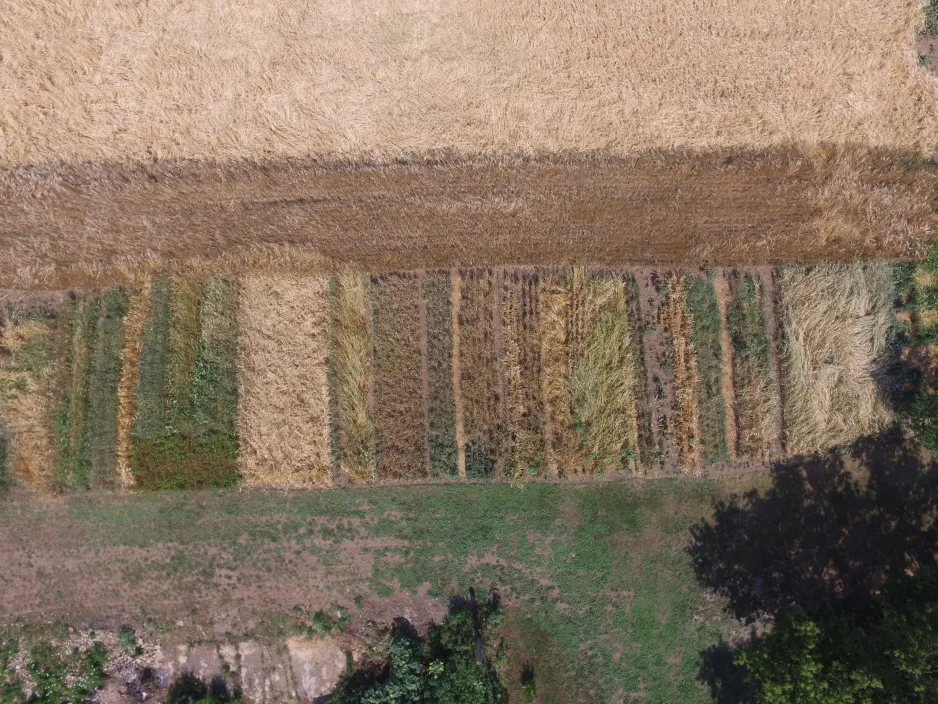
An aerial view of the multi-coloured crops at Against the Grain Farms.
Ingenium Channel (IC): I understand that a few years ago, your farm added an additional 50 acres to dedicate to heritage and non-genetically-modified crops for food. Why did you decide to make the change?
Shelley Spruit (SS): My husband and I had been farming for 28 years at the time, and we became increasingly concerned about the loss of bio-diversity in agriculture, the loss of seed genetics, and the fluctuating commodity prices. We decided we needed to be the change that we wanted to see in the food industry.
IC: Tell me about locally-grown grains in Ontario and Canada. What crops are you growing and why are they important?
SS: Locally-grown grains in Ontario and Canada are no different than most of the rest of the world. Wheat, soybeans, and corn are the big three that have pushed most other cereal grains to the sidelines. Cheap imports make it very difficult for the farmer to grow other crops for profit. This year, we have over 28 variety trials of heritage wheats, barley, and triticale. We also have 31 varieties of heritage dried beans, and are excited to see how they yield at harvest. In addition, we grow coloured corn — including a heritage red Spanish corn and a traditional white Mexican corn.
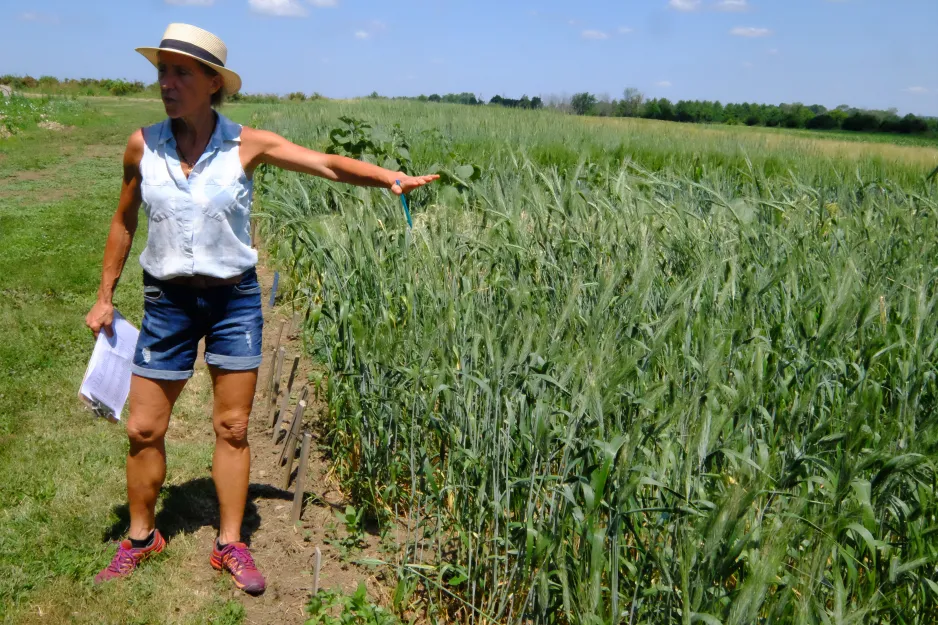
Shelly Spruit takes inventory of her nursery rows at Against the Grain Farms.
IC: I understand that some of these crops have incredible nutritional properties; can you tell me about some of them?
SS: Last year we released a heritage amber wheat (Brazilian Lavras) that we had been working on for four years for seed stock. When tested for protein level, it was 15.3 per cent — which is exceptional, as most wheat are typically 13 per cent. The bread bakers have fallen in love with this wheat, and we are very proud to have been able to revive this seed stock. The other grain I am very keen on is the purple barley. It started with a handful of seeds, and last year our harvest was 1.5 tonnes! Investing into a grain for four to five years is truly a labour of love, but it’s so rewarding when you get such positive feedback from the chefs, bakers, and consumers.
IC: Tell me about your hull-less barley, which was developed by a Canadian scientist.
SS: When we purchased the farm five years ago, we had spent a lot of time researching options for different varieties of cereal grains. I had attended a symposium on grains at the Experimental Farm, and was enamoured by this variety that had a Canadian Health Claim proven to lower cholesterol and one pending for glycemic levels. I was excited at the idea of growing a grain that could be used as a “functional food.” Imagine being able to tell people they could eat a food instead of taking medications.
IC: You’ve formed some interesting partnerships within the Ottawa community; I’ve read that Purebread Organic Bakery and the Red Apron use Against the Grain’s barley, purple corn meal, and purple corn flour in their products. Are there other retailers where Ottawans can find products made with your crops?
SS: Yes we have developed some excellent relationships with the chefs in the city. They have supported our work, and we are very humbled to see dishes featured on the menus of Eldon's, North & Navy, Baccanelle, Alice, and others over the years. Currently, our products are carried at the Red Apron, at Landsdowne Market on Sundays, as well as our warehouse location on the farm. We are also planning an online store for our website.
IC: Tell me about your Grain Share program, and what it offers to consumers looking for alternatives to mainstream products.
SS: We have teamed up with Roots and Shoots to offer their clients the option of adding a grain share weekly or by-weekly. For each share, they get two retail products from Against the Grain and recipes on how to use them. We also include a newsletter about things that are happening on the farm, and some history about the grains received. We really promote the ease and health benefits of cooking with whole grains, and the importance of using whole grain flour in their baking. Heritage red cornmeal for cornbread, ancient grain medley for pilaffs, and barley flour for baking are just a few of the options we offer.
Shelley Spruit will be at the Canada Agriculture and Food Museum on Thursday, Sept. 26 as part of the Food for Thought lecture series.


